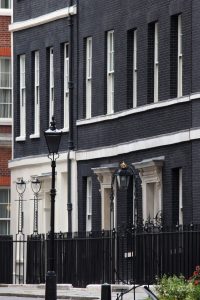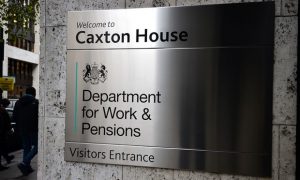Latest News
Millions wasted in failed NHS hospital closure programme
Tens of millions of pounds have been wasted on a major failed hospital closure programme, according to an internal NHS document passed to the Guardian.
A confidential, draft document circulated to NHS North West LondonCollaboration of Clinical Commissioning Groups, which serves more than 2 million Londoners, admits the blueprint for one of the NHS’s largest planned reorganisations has failed.
“NHS commissioners and providers in north-west London have therefore decided to draw the SaHF [Shaping a Healthier Future] programme to a conclusion,†the document states.
The proposal was a flagship for reorganisation of the NHS in England when it was launched in 2012 and involved a reduction in the number of acute hospitals in eight London boroughs from nine to five. Julian Bell, the leader of Ealing council, described it as “a monstrous planâ€.
It was part of NHS strategy at the time to replace some acute hospitals with care provided in the community.
The document states that £76m has been spent on management consultants for the failed scheme from 2010-11 until the end of 2018. It outlines how health officials can respond to difficult questions that may be asked about the failed scheme. It also discusses preparing people for new changes as part of the NHS’long-term plan, which the document states will involve “difficult decisions and trade offsâ€.
SaHF argued that four acute hospitals in – Hammersmith, Central Middlesex, Charing Cross and Ealing – could be downgraded. The proposal involved the loss of more than 600 acute hospital beds. The document reports there has been a reduction of just seven hospital beds in the last six years.
The closure of Charing Cross was particularly controversial after plans were revealed to sell off 87% of the valuable central London site by the Guardian. But in March the health secretary, Matt Hancock, announced that plans to close A&E departments at Charing Cross and Ealing hospitals would no longer go ahead.
The document says: “Continued growth in demand for acute care, despite investment in primary and community services, a growing underlying budget deficit and shortfalls in our ability to recruit and retain enough staff with the right skills’ means that the plan, as originally envisaged, is no longer viable.â€
It provides statistics about an increase of 227,288 in A&E attendances across north-west London since 2012 – a 4% rise per year, with a 2018-19 waiting list of 177,395 patients, which would require the provision of 95 extra beds for a year to clear the backlog. The document adds there has been a 40% increase in patients waiting for non-urgent surgery.
It reveals how officials plan to “spin†this failure by citing improvements such as 100 new midwives and 90 new children’s nurses.
Source

Brussels greets Boris Johnson victory by rejecting Brexit plans
Boris Johnson’s election as Conservative leader has been greeted in Brussels with a rejection of the incoming British prime minister’s Brexit demands and an ominous warning by the newly appointed European commission president about the “challenging times aheadâ€.
Ursula von der Leyen, who will replace Jean-Claude Juncker on 1 November, said both sides had a “duty†to deliver a deal as she offered her congratulations to Johnson on his victory.
“There are many difficult issues we will tackle together,†she said. “It is important to build up a strong working relationship because we have a duty to deliver something which is good for the people in Europe and the United Kingdom.â€
Juncker later published a letter to Johnson in which he wrote of his hopes of working together in “in the best possible wayâ€.
The EU’s chief Brexit negotiator, Michel Barnier, tweeted that he wanted to work “constructively†with Johnson on the basis that both sides were committed to facilitating “the ratification of the withdrawal agreementâ€, the deal struck by Theresa May that the new Conservative leader has repeatedly described as dead.

Bank: UK ‘prepared for Brexit and trade war fall-out’
The comment came in its regular health check on the banks, the Financial Stability Report.
The Bank said “the perceived likelihood of no-deal Brexit has increased since the start of the year”. It said that “material risks” of economic disruption from such a scenario remain.
However, there had been “some improvement in the preparedness of the UK economy for no-deal Brexit”. Since last year, UK banks have been forced to hold back more capital, and demonstrate easy access to £1 trillion in funding (liquidity).
The Bank says that such a buffer would allow the banking system to continue to lend into the economy, even if the UK were shut out of international markets for three months.
This worst-case scenario stress test involves the economy shrinking by 4.7%, unemployment more than doubling to 9.5% and property prices falling by 33%.

Universal credit scam ‘leaves claimants up to £1,500 out of pocket’
Tens of millions of pounds have reportedly been stolen by fraudsters as a result of a universal credit scam that has left affected claimants up to £1,500 out of pocket.
The Department for Work and Pensions (DWP) is under to pressure to explain what it intends to do to counter a scam in which criminals obtain claimants’ personal details, often by posing as DWP staff, to make bogus online applications for universal credit.
According to a BBC report, contributors to an internal DWP staff forum estimate the losses so far could amount to as much as £20m, with hundreds of bogus claims every day for advance loans of up to £1,500. The DWP said it questioned the figures, but could not say if it had different estimates.
Once the claim is established the scammers can apply for, and take a cut of, an advance loan of hundreds of pounds routinely offered to new claimants to get them through the minimum five-week wait for a first payment.
In other cases in which claimants’ details are obtained without consent, the first the claimant becomes aware of the scam is when they receive a letter from the DWP telling them their existing benefits have been cancelled, their universal credit claim has opened and they must repay the advance loan.

UK’s lack of plans to protect people from climate crisis ‘shocking’, say advisers
The government’s own advisers have declared themselves shocked that the UK has no proper plans for protecting people from heatwaves, flash flooding and other impacts of the climate crisis.
The Committee on Climate Change said the UK’s climate crisis preparations were being run like Dad’s Army and left the population at real risk, adding that funding for programmes to tackle problems resulting from global heating had been cut.
The CCC’s annual progress reports, published on Wednesday, also found that just one of the 25 emissions-cutting policies it said were vital in 2018 had been delivered in full. Lord Deben, who chairs the committee, said ministers could be sued in court if the failure to act continued.
Theresa May announced in June that the UK would be the first major economy to set a legally binding target to end climate emissions by 2050. However, the CCC said the targets for 2025 and 2030 were likely to be missed by an even bigger margin than last year.

Global heating: London to have climate similar to Barcelona by 2050
London will have a similar climate in three decades’ time to that of Barcelona today, according to research – but if that seems enticing, a warning: the change could be accompanied by severe drought.
Madrid will feel like present-day Marrakech by 2050, and Stockholm like Budapest, according to a report on the likely impacts of the climate crisis. Around the world, cities that are currently in temperate or cold zones in the northern hemisphere will resemble cities more than 600 miles (1,000km) closer to the equator, with damaging effects on health and infrastructure.
Water shortages will affect scores of cities now in temperate climates as a result of the global heating, which is forecast to be by as much as 3.5C in European cities in summer and 4.7C in winter.
Nearly eight in 10 cities will experience dramatic changes, according to the study of 520 major cities published in the journal Plos One.

130,000 trees to be planted in English cities and towns
More than 130,000 trees are to be planted in English towns and cities over the next two years as part of the nation’s battle against global heating.
The environment secretary, Michael Gove, will announce on Sunday that grants for the plantings will be made available through the Urban Tree Challenge Fund.
The scheme, which will be administered by the Forestry Commission, will be open to individuals, local authorities, charities and NGOs. Grants will be given to pay for the planting of trees and for the first three years of their care in order to ensure they flourish.
“This will allow us to plant more trees much closer to where people live and work and where the benefits of trees make the most difference,†said the Forestry Commission chair Sir Harry Studholme.
Trees play a crucial role in the fight against global heating – caused by burning fossil fuels that release carbon dioxide – because they store carbon. Trees in cities and towns also absorb noise, reduce flood risk, provide shade in summer and are associated with general good health and wellbeing.

Scientists fear impact of deep-sea mining on search for new medicines
Bacteria from the ocean floor can beat superbugs and cancer. But habitats are at risk from the hunger for marine minerals
hen Prof Mat Upton discovered a microbe from a deep-sea sponge was killing pathogenic bugs in his laboratory, he realised it could be a breakthrough in thefight against antibiotic resistant superbugs, which are responsible for thousands of deaths a year in the UK alone.
Further tests last year confirmed that an antibiotic from the sponge bacteria, found living more than 700 metres under the sea at the Rockall trough in the north-east Atlantic, was previously unknown to science, boosting its potential as a life-saving medicine.
But Upton, and other scientists who view the deep ocean and its wealth of unique and undocumented species as a prospecting ground for new medicines, fear such potential will be lost in the rush to exploit the deep sea’s equally rich metal and mineral resources.
Upton estimates it could take up to a decade for a newly discovered antibiotic to become a medicine – but the race towards commercial mining in the ocean abyss has already begun.

Shelter Southwark Housing Advice
Shelter helps millions of people every year struggling with bad housing or homelessness through our advice, support and legal services.
We campaign to make sure that, one day, no one will have to turn to us for help. We’re here so no one has to fight bad housing or homelessness on their own.
Who we are
A Southwark-based service offering free
and independent advice and support for
people needing help to access safe, secure
and affordable housing.
How we can help you
The service we can offer includes:
â– Practical help to keep your tenancy
â– Support to liaise with Southwark Council regarding your case
â– Help accessing legal services
â– Help finding additional support services
â– Support to resolve problems with your landlord
â– Support finding a suitable new home
If you would like to speak to someone, come to one of our drop-in sessions on Mondays and Wednesdays 10am to 1pm. Drop-in sessions are first come, first served so you are advised to arrive as early as possible.
We are based in the ground floor reception area of Southwark Council’s Housing Solutions Service, 25–27 Bournemouth Road, Peckham, SE15 4UJ.
Alternatively, if you would like to speak to someone about booking an appointment, you can email us at [email protected]

